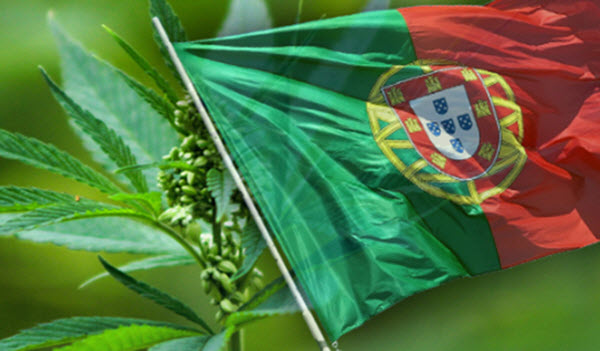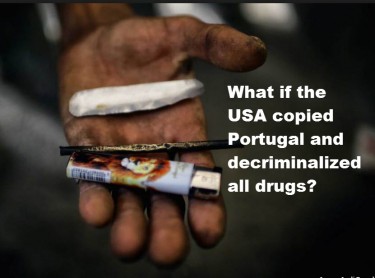
Portugal poses a major hurdle to legal marijuana-based medicines
Cannabis has been used to treat medical ailments by different cultures around the world for thousands of years. Modern research has also worked to test these healing properties of cannabis, and it has been shown to be effective in treating a wide variety of diseases. Even so, the majority of countries in the world criminalize and punish citizens caught using the drug for whatever reason. Fortunately, the Portuguese government saw the light!
The nation has gradually followed in the footsteps of other countries that decriminalized cannabis use and now has an active domestic market for these products too – hopefully with the right steps they will go further.
Portugal decriminalized drugs in the early 2000s and has since continued to relax drug laws in the country. For the past five years, the Portuguese government has legalized cannabis use for medical purposes (in 2018) and the government has also established a method by which refined cannabis products can be grown and mass produced (in 2020) a welcome development!
As you can see, Portugal has been proactive when it comes to cannabis for a while and they are back on it. In this article, I’m going to enlighten you about the cannabis-based medicine recently approved by the Portuguese government and the main compound it contains.
Although Portugal passed the Medical Cannabis Law in 2018, many Portuguese citizens doubted the government would go all the way to approve a cannabis-based drug. That is why it is worth celebrating this milestone. This drug is the first in the country and currently the only approved and legal cannabis-based drug. However, signs show that over time the government would begin approving more of these drugs for increased stability in the health sector.
It is currently unclear whether the government would approve the use of recreational cannabis or not. However, Portugal has gradually relaxed drug laws in the country, but this approval is the most important. With this drug, multiple patients can have access to medical cannabis to find relief for their medical problems where traditional and conventional methods may have failed.
The country’s health authority, the National Authority for Medicine and Health Products, has also recommended the product for a number of medical ailments where normal medications do not appear to be effective in relieving symptoms of the disease.
It has been reported that Tilray – one of the world’s leading providers of the cultivation, production, distribution and research of cannabis plants – plans to distribute these cannabis-based medicinal products across the country. The company is known for making high quality cannabis-based medicines available in fifteen other countries.
The director of the company’s Portugal office, Barata, has assured the country that plans are being made to accelerate the approval of other medicinal cannabis products. This allows clinicians to choose which is best for each patient.
In both the United States and the United Kingdom, the cannabis market is fairly permeable. In these countries, large, medium and small companies are working very hard to create original and standalone cannabis-based products for medicinal and recreational purposes.
Unsurprisingly, these companies are now testing the various chemical and volatile components in the cannabis plant. For example, the terpenes, flavonoids, and CDs present in each strain of cannabis are studied to find out their usefulness in the products made.
Not only does this help users identify if an allergic compound is present in the plant, but it also helps these companies develop products with better synergies that further enhance the famous “entourage effect” experienced by seasoned weed users.
Unlike the UK, which allows medicinal products with equal amounts of THC and CBD sativex, Portugal plans to use medicinal products whose main ingredients are THC.
THC – tetrahydrocannabinol – is the main component of a cannabis drug that induces the “high” when it binds to receptors in the brain. Researchers have found that high amounts of THC can also be used medicinally.
Some of the health conditions that THC-optimized cannabis-based drugs are good for include:
Pain (chronic pain associated with diseases such as cancer)
glaucoma
Spasticity
nausea
Vomit
Chemotherapy reactions
insomnia
Low appetite etc.
The Portuguese government plans to use this to use the psychoactive compound in varying amounts to create cannabis-based drugs – making their product original, authentic and modern.
In addition, a production facility is planned in the country. The country plans to manufacture units of this medicine within national borders in the near future.
This is a commendable achievement. And if it is a success, the country would make a lot of financial gains from exporting the product.
The cannabis-based medical bill is one of the best innovations in Portugal right now. However, if the proliferation of this product cannot be controlled, it could lead to an increase in illicit drug use, overdose, death, accidents due to driving influences and an increase in crime rates.
For example, when drug laws were initially relaxed in 2001, many problems arose, including the points above. Hopefully the country foresaw this path as well, and has plans in place to ensure that only prescription patients have access to the drug. This could be the reason why growing cannabis strains at home is still banned in Portugal. There should also be penalties for citizens who try to follow the law.
With all these plans Portugal can now be counted among the drug-poor countries in Europe and also in the world. The laid back attitude and legalization of cannabis-based medicine would improve the health sector in the country. This will make the country attractive to tourists and also boost the country’s economy when the drugs are made and ready for export – hopefully other countries would have signed their cannabis medicine bill by then.
It is commendable that the country already has a manifestation of the Cannabis Medicine Act of 2018.
MORE ABOUT LEGALIZED MEDICINAL PRODUCTS IN PORTUGAL, READ MORE …

SHOULD THE US DECRIMINAL ALL DRUGS LIKE PORTUGAL?

Post a comment: